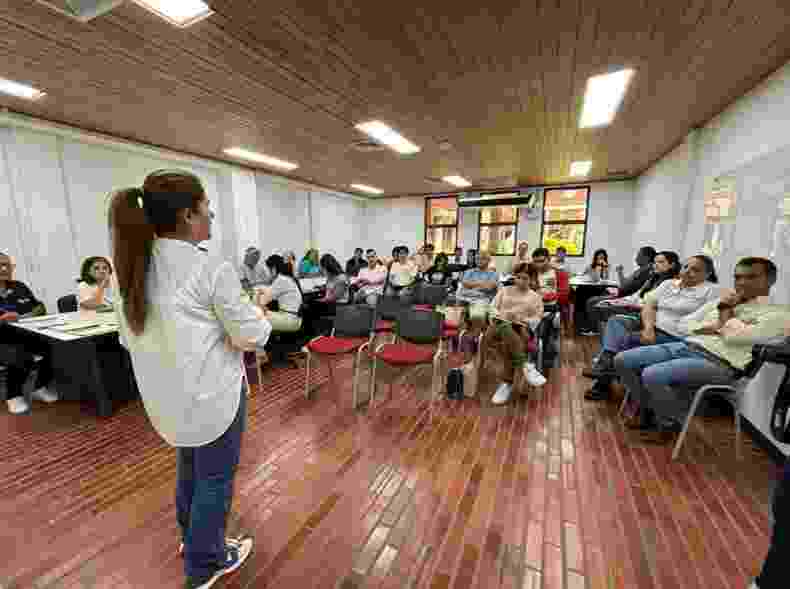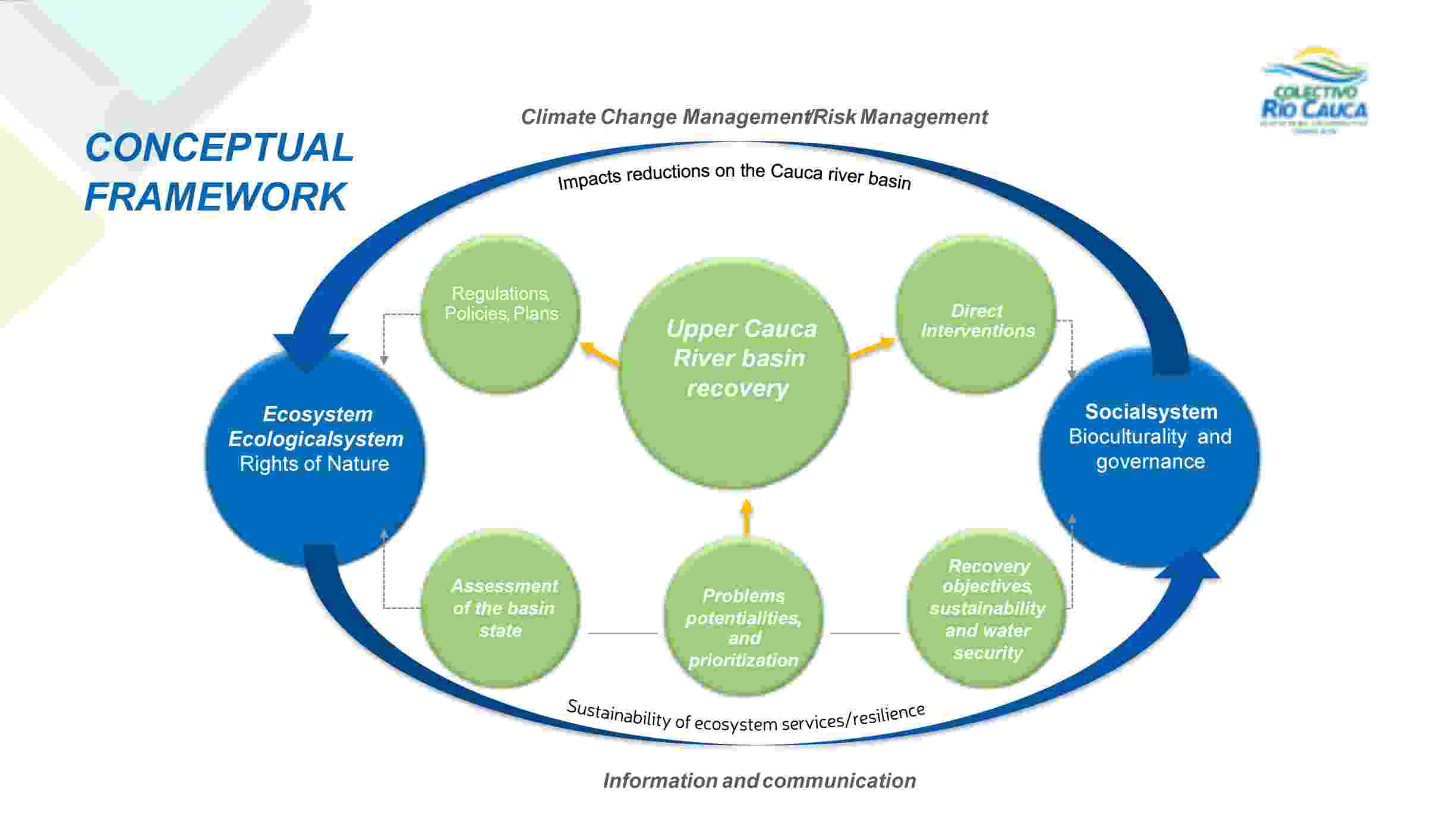Inter-institutional cooperation to facilitate long-term action
Collaborative Platform for the Recovery of the Upper Cauca River Basin, Colombia
15 March 2024


Flowers on the páramo region in the River Palace Upper Basin
Julián Zúñiga-Barragán & Luis Darío Sánchez T.
The Collaborative Platform for the Recovery of the Upper Cauca River Basin (UCRB) is a collective work initiative that promotes action between different public and private actors, civil society, and communities. It aims to articulate technical, economic, social, and administrative efforts for the restoration and recovery of the UCRB, considering the processes and realisation of integrated water management. The UCRB is a strategic ecosystem for the regulation and supply of water and is key to the sustainability of the region, forming part of the páramo biome in south-western Colombia. Therefore, the work undertaken by the Collaborative Platform represents a national priority strategy. The Platform facilitates action-oriented, cross-sectoral cooperation with a long-term vision and operates through a Memorandum of Understanding between 28 institutions. The platform integrates a collaborative governance strategy to achieve negotiated agreements, interactive planning, and participation of all stakeholders in the recovery of the UCRB.


The need for collaboration between different stakeholders to share visions, objectives and rules was identified in the context of the UCRB recovery. This facilitates collaborative governance, enabling the achievement of consensus outcomes and benefits for all stakeholders with greater transparency and commitment. It also allows for connectivity between all relevant stakeholders and their ability to participate in and agree on actions to be taken in the short, medium, and long term.


The platform's conceptual framework was defined through collaborative academic and institutional work, taking into account the definitions of the Water Security and Sustainable Development Hub research project. Given the discussion and understanding of the deep relationship of wholeness between nature and human species, collaborative governance has been incorporated to coordinate the recovery of the Upper Cauca River Basin, based on the concepts of bioculturality and rights of nature. This conceptual framework also includes water security and sustainability, risks related to climate change and variability, rights of nature, integration of ethnic and cultural diversity, collaborative and participatory practices, and cultural landscapes of water or waterscapes. Research, innovation, and development, and the roles, knowledge, and skills of actors were all recognised as fundamental pillars of the overall objective for the long-term recovery strategy. An integrated communication and information strategy was also key.
With a total of 14 projects, the strategic lines and action plan were agreed by the platform members.The new regional and local governments of Valle del Cauca and the municipality of Santiago de Cali shared this action plan in joint meetings.
As a highlight of this collaborative work, the Platform has managed to include the recovery of the Upper Cauca River Basin in the 2023-2027 National Development Plan and has also supported the management of the technical designs for the secondary stage of the Cali city wastewater treatment plant. The latter was funded by the regional environmental authority, CVC, and will allow a further 50% reduction in the pollutant load currently discharged into the river.
For more information, contact:
Engineer Beatriz Orozco, Technical Environmental Sub-secretary of the Secretariat of Environment and Sustainable Development; Technical Secretary of the Collaborative Platform for the Recovery of the Upper Cauca River Basin, Government of Valle del Cauca: borozco1@hotmail.com
Professor Luis Dario Sánchez, member of the Collaborative Platform; member of Water Security and Sustainable Development Hub, Universidad del Valle, Cali, Colombia: luis.sanchez@correounivalle.edu.co



